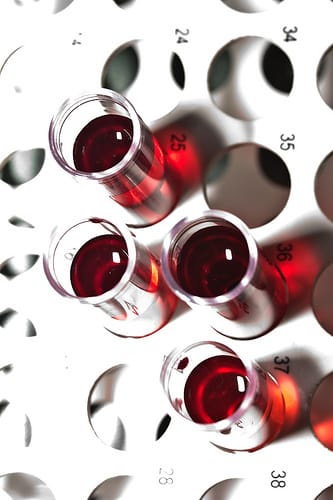 Many people believe blood tests are only administered in times of illness or trauma. However, doctors suggest your blood be tested regularly. This could be done during your annual physical or depending on how you live, what you eat, and how often your exercise, you may want to get your blood tested more often. Aside from finding the cause of illness, there is a lot of information your blood offers to your physician that can help keep you healthy and happy.
Many people believe blood tests are only administered in times of illness or trauma. However, doctors suggest your blood be tested regularly. This could be done during your annual physical or depending on how you live, what you eat, and how often your exercise, you may want to get your blood tested more often. Aside from finding the cause of illness, there is a lot of information your blood offers to your physician that can help keep you healthy and happy.
Chemistry Panel and Complete Blood Count
If you watch one of the many medical shows on TV, you may have heard the ER doctors yelling for a CBC. A complete blood count gives your doctor a quick look at your overall blood health. The test measures the number of red and white blood cells and the number, concentration, and quality of your platelets. This is important for the doctor to determine if your blood is fighting an infection, has hematological abnormalities or if you are suffering from an anemia.
At the same time the doctor will run a chemistry panel. This screening will give a good look at the status of your cardiovascular system. It often tests for total cholesterol, high-density lipoprotein, low-density lipoprotein, triglycerides, and your total cholesterol to HDL ratio. This screen will also measure your blood glucose, which is important for detecting diabetes and coronary artery disease. As diabetes have been on the rise, this is an important test that can save your life.
The Importance of Testing Your Fibrinogen
Fibrinogen is an important factor to blood clotting. Having your fibrinogen levels checked can help in diagnosing a variety of conditions. If your levels are too high, you could be at risk of heart disease or stroke. Fibrinogen levels rise as a response to tissue inflammatory; these levels can help predict these fatal cases.
The University of Hong Kong Medical Center published a study identifying increased fibrinogen as an independent contributor to peripheral arterial disease. The study, which included 139 men and women with peripheral arterial disease, showed that 80% of the patients with fibrinogen levels above 340mg/dl survived for less than 3 years. With a change in lifestyle, such as losing weight, quitting smoking and proper diet, can help bring increased fibrinogen down to optimal levels and help battle these conditions, making this test an important preventative measure.
What is Homocysteine and Why Test It?
Homocysteine is an amino acid formed during the metabolism of methionine. Physicians associate high levels of homocysteine with an increased risk of heart attack, bone fracture, and impaired cognitive function, the performance of mental functioning. A physicians study followed 14,916 healthy males with no history of heart disease. The study showed those with increased levels were 3 times more likely at risk of heart attack over a 5 year period.
Aside from heart attacks, bone fractures are also common in those with increased homocysteine levels in senior citizens. This amino acid also impairs cognitive function in those between 30-80 years of age when levels are increased. This affects understanding, memory and concentration. There are natural therapies that may assist in optimizing your homocysteine levels, such as folic acid, vitamin B6 and B12, betaine, and lecithin. However, your levels should be tested and your physician should be consulted before starting any vitamin regiment.
Even if you feel fine, have no history of medical problems and believe you are healthy, regular blood testing can help prevent fatal conditions in the future. As diabetes, mental illness, and heart conditions are on the rise, it is more important now than ever to know what is going on in your body and make the changes needed to live a long and healthy life.
John Martin writes for health blogs. If you’re having health problems and want to check your blood work, look into the resources for doing blood work in California.














